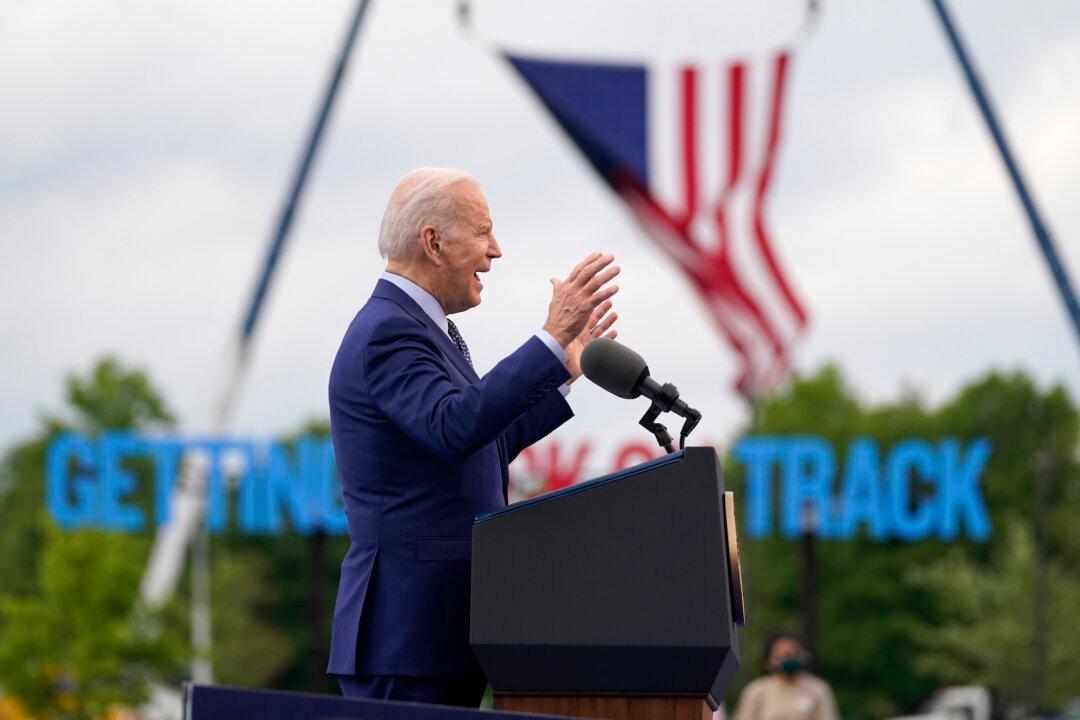President Joe Biden spoke at a drive-in rally in Georgia on Thursday, seeking to build public support for $4 trillion in new spending on infrastructure and a vast expansion of the federal social safety net, to be paid for chiefly by tax hikes on corporations and wealthy Americans.
Moments after Biden took to the stage at the Infinite Energy Center in Duluth, a suburb of Atlanta, he was interrupted by protesters calling for an end to private prisons, chanting, “end detention now!”





